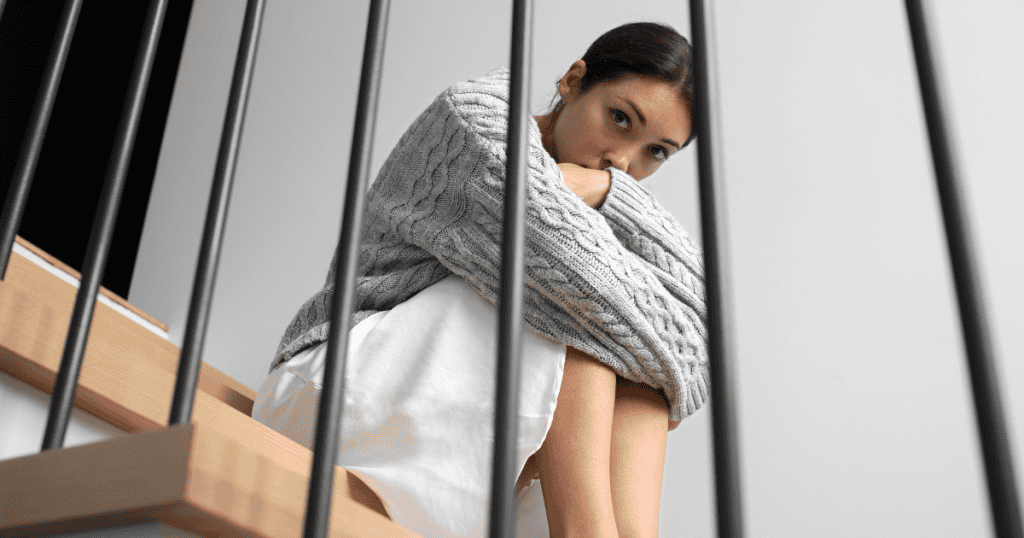The harshest judgment doesn’t come while you’re being controlled. It comes after you finally leave.
Not when you were silent, pleasing, or endlessly forgiving. But when you start breathing again.
That’s when people turn.
They whisper, “She’s changed.” They call you distant, cold, or “too sensitive.”
They didn’t see the years you spent contorting yourself into something small enough to survive.
They didn’t see how you built entire strategies just to keep the peace, predicting moods, rehearsing apologies, staying invisible.
But now that you’re free? You’re suddenly “difficult.”
People defend the narcissist with excuses, “That’s just how she is,” or “He means well.”
But you, the survivor, are the one under a microscope.
Here’s the truth no one says aloud: Their judgment isn’t about you.
It’s about who they thought you were. The muted, controlled version that existed to make others comfortable.
Their opinion doesn’t define your worth. It only exposes how little they ever knew you at all.
Table of Contents
They Only Saw the Survival Version of You

Most people met you when you were in survival mode. Not living, just enduring.
They met the version that calculated every word before speaking, who apologized just to end arguments she didn’t start.
The version who laughed softly so no one would accuse her of being “too much.”
There was a time when my narcissistic mother walked in while I was slicing mangoes for breakfast.
She scowled and said, “You always waste the best parts.”
My toxic brother looked up from his phone, waiting to see how I’d respond.
I smiled and said, “You’re right, I’ll do better.”
But it was never about mangoes. It was about control.
That’s who they knew. The version of me who adjusted herself to match other people’s tempers.
When you live that way long enough, people get comfortable with your compliance.
They think that’s your personality.
They build their entire image of you around how much you can tolerate.
So when you finally stop, when you begin setting boundaries, protecting peace, choosing truth, it shocks them.
Not because you changed, but because you stopped pretending.
The Eggshell Life

Survival mode means mastering invisibility.
I could sense my controlling mother’s mood from the sound of her footsteps in the hallway.
I’d adjust everything, like my tone, body language, and even how I placed my cup on the table.
One wrong sound could spark an explosion.
That’s the part no one saw.
To the outside world, I looked calm and accommodating. Inside, I was hypervigilant, always scanning for danger.
People loved that version. Polite, quiet, “so easy to be around.”
Of course they did. That version existed entirely for their comfort.
So when I grew quieter around people after leaving that environment, they didn’t see recovery. They saw “moodiness.”
They wanted the old me back, the one who never said no, never disagreed, never took up space.
But the old me wasn’t at peace.
She was exhausted and wrapped in politeness.
The Suppressed Personality
I used to love dancing in the living room after chores.
But every time I did, my jealous sister would roll her eyes and say, “Can you not be so loud?”
My mother would sigh, “You’re too full of yourself lately.”
So I stopped dancing.
Years later, when I joined a Zumba class at a friend’s studio, my aunt saw a video of me laughing, sweating, and alive.
She commented, “You’ve really changed. You used to be humble.”
No. I used to be silenced.
They never saw how much of yourself you had to bury to keep others from feeling threatened.
The hobbies you abandoned. The clothes you didn’t wear.
The joy you toned down because your light made someone else uncomfortable.
People mistake your suppression for humility and compliance for kindness.
When you reclaim those parts, the laughter, the creativity, the color, they call it rebellion.
But that’s not rebellion. That’s resurrection.
People Don’t Understand the Rules You Lived Under

Every narcissistic system runs on unwritten laws, ones outsiders can’t see.
In mine, the rule was clear: “Never contradict my mother in front of others.”
Even if she lied. Even if she humiliated me.
I’d nod, smile, and play along. Then later, I’d cry quietly in the bathroom and convince myself I was overreacting.
These invisible rules shape your entire personality.
They train you to read minds, predict storms, and smooth over chaos before anyone else notices.
To people outside this narcissistic dynamic, it looks like passivity.
But really, it’s crisis management, an instinct so deep you forget it’s not normal.
Playing Their Game
When survival is on the line, you become an expert in emotional camouflage.
I used to agree with everything my toxic mom said, even things I didn’t believe, because disagreement meant emotional warfare.
I’d nod through her rants, force a smile, and say, “You’re right, I see your point.”
Years later, after going low contact, a cousin told me, “You’ve become so opinionated lately.”
I laughed because what he called “opinionated” was just me speaking without fear.
They didn’t realize that for years, every smile, every nod, every soft “you’re right” was an act of self-preservation.
A performance crafted to stay safe.
When that mask drops, people see rebellion because they were never forced to wear the mask themselves.
The Judgment Trap
When you finally escape, you expect empathy. Instead, you get judgment.
My manipulative brother once told me, “You’ve gotten so defensive. It’s hard to talk to you now.”
But really, what he meant was, “You don’t let me talk to you like Mom did.”
People label you “different” because they can’t access you in the same ways they used to.
They can’t push boundaries that no longer exist.
Their confusion says nothing about your healing. It only exposes how dependent they were on your silence.
So when they say you’ve “changed,” smile. That’s proof you’re healing.
Healing Looks Like Rebellion to Outsiders

Healing from narcissistic abuse isn’t graceful. It’s messy, loud, sometimes defiant.
You start saying no, and people panic.
You rest instead of overworking, and they call you lazy.
You refuse to take the bait, and they call you detached.
That’s because healing looks like rebellion to those who benefited from your exhaustion.
I remember telling my toxic siblings I wasn’t coming home for the holidays for one year.
They stared at me like I’d committed treason and asked, “After everything we’ve done for you, this is how you repay us?”
I wasn’t abandoning anyone. I was saving myself.
To people who feed off control, self-preservation looks selfish.
Risking Authenticity
Authenticity is dangerous when you’ve spent a lifetime earning safety through silence.
The first time I disagreed with my self-absorbed sister openly, she said, “Wow, you’ve really got an attitude now.”
But all I did was state a boundary calmly and factually.
Authenticity feels terrifying because it breaks old narcissistic conditioning.
You half-expect punishment every time you speak your truth.
But with every risk, every small act of self-expression, you rewire your brain to trust safety again.
Confidence doesn’t come from healing perfectly.
It comes from surviving your own silence long enough to find your voice again.
New Rules, New You
Freedom isn’t chaos. It’s clarity.
Your new rules are simple:
- Rest is not laziness.
- Boundaries are not cruel.
- Distance is not betrayal.
When you start living by those truths, people notice. Some applaud while others recoil.
My mother’s younger sister once told me, “You don’t visit much anymore. You think you’re better than us?”
No, I just stopped visiting people who confuse guilt with love.
Every survivor has a moment like that, when the world tries to drag them back into smallness, and they say no.
It’s terrifying, but it’s also the moment you finally meet yourself.
People Don’t Get It, But Survivors Do

Here’s the secret every survivor eventually learns: You can’t make the uninitiated understand the rules of a game they never had to play.
They never had to watch a narcissistic parent’s face for micro-expressions before deciding if it was safe to speak.
They never had to rehearse apologies for things they didn’t do.
So when they say, “Just move on,” or “It’s not that bad,” it’s ignorance.
You’re not dramatic. You’re detoxing.
You’re rebuilding an identity from fragments, learning what real peace feels like, and trying to trust your instincts again.
And yes, you’ll overcorrect sometimes.
You’ll second-guess every tone, every reaction, wondering if you’re becoming “like them.”
But you’re not. That fear proves it.
And while outsiders may never understand, other narcissistic abuse survivors will.
They’ll nod quietly when you share your story. They’ll say, “Yes, me too.”
They’ll understand the relief and the grief that come with freedom.
You’ll find each other, and in that shared knowing, you’ll remember that you’re not alone.
Their Judgment Isn’t Your Mirror

Judgment used to terrify you. Now it just reminds you how far you’ve come.
Because their opinions are reflections of their own comfort, not your character.
They don’t know the nights you spent trying to make sense of chaos or how hard it was to choose peace over belonging.
When people say, “You’ve changed,” they’re right.
You’ve changed from the woman who tolerated everything to the woman who questions everything.
From the one who flinched to the one who stands tall.
They may never applaud that transformation. But you don’t need applause. You need truth.
Judgment is proof that you’re no longer performing for acceptance.
You’re finally living for yourself. Raw, honest, unfiltered.
So let them call you cold. Let them say you’re distant. Let them miss the version of you that kept them comfortable.
Because this version, the one who speaks, rests, and breathes freely, isn’t built for their approval.
She’s built for peace.
And peace, after narcissistic abuse, is the loudest rebellion there is.
Related posts:
- Why Narcissists Get Away With Everything (And Society Calls You ‘Crazy’)?
- Why Society Protects Toxic Families And Silences The Ones Who Escape?
- How I Documented My Way Out of Narcissistic Abuse (And Starved Them of Supply)
- 7 Perspective Shifts That Changed Everything For Me After Healing From Narcissistic Abuse
- 25 Characteristics of Family Scapegoat: Understanding Your Role & Path to Healing


